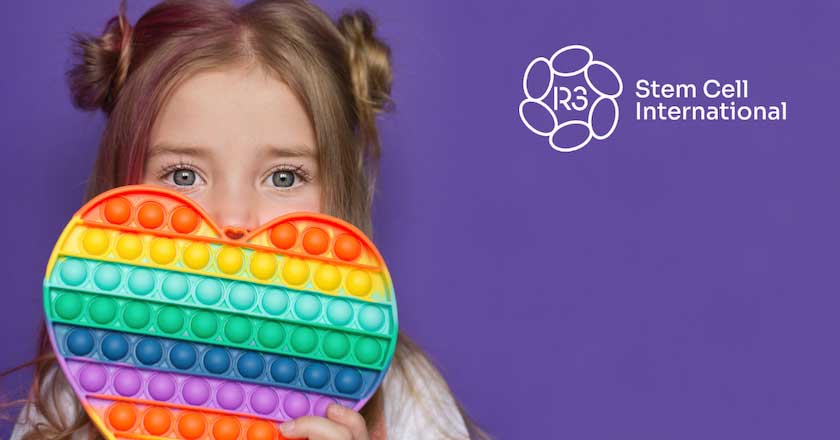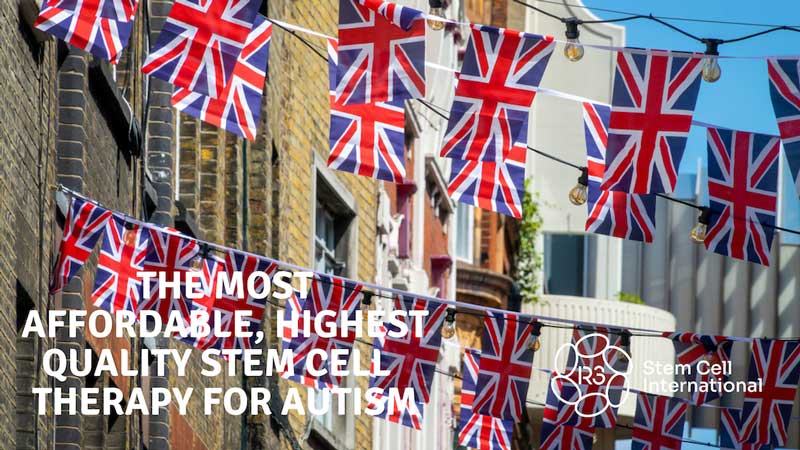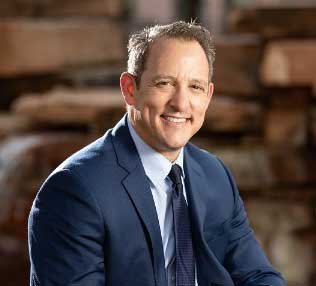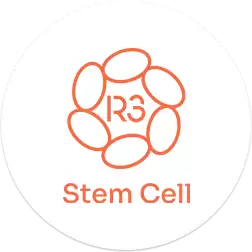Stem cell therapy for autism has been an exciting option for families globally, as several studies have shown the treatment to not only be safe, but also effective. Around the world, data shows that approximately 1 in 54 children are affected by ASD, which is short for autism spectrum disorder.
While stem cell therapy for autism in the United Kingdom is not allowed, R3 Stem Cell offers the treatment for ASD in several countries. This includes Philippines, Mexico and Pakistan to date. In England, the incidence of autism is no different than the rest of the world. So stem cell therapy for England has a significant need!
ASD actually includes 3 separate disorders. This includes autism, pervasive development disorder, and Asperger’s syndrome. Traditional treatments for ASD have included various types of speech and behavioral therapy along with off label medications. There is no cure for ASD, and most families are left unsatisfied with what traditional therapies are able to offer. Results are usually suboptimal.
Stem cell therapy has been shown in several studies to be very helpful in categories of behavior and communication. These studies are outlined in a free Consumer Guide to Stem Cell Therapy for Autism that is available on https://stemcellautism.com which was written by R3 Founder/CEO David Greene.
Stem cell therapies that have been studied to date have included either autologous or allogeneic. Autologous refers to stem cells that come from the patient him/herself. Allogeneic refers to stem cells that come from a donor.
When looking at how stem cells work in patients with ASD, there are six known mechanisms we know of, and most likely plenty more.
- Inflammation: Stem cells are amazing at reducing inflammation. Some researchers think that autism is a result of neuro-inflammation, which resolves when stem cells are administered.
- Immune Modulation: Some researchers also hypothesize that children with ASD suffer from an immune system abnormality. Mesenchymal stem cells have been shown to positively modulate the immune system.
- Blood flow: Stem cells initiate new blood flow for patients, which is great for bringing new oxygen and nutrients into areas for tissue repair and regeneration.
- Cellular proliferation: Stem cells initiate cellular proliferation in areas that are in need of it. This may include neuron creation to assist with new neural networks.
- Prevention of apoptosis: Apoptosis involves programmed cellular death. With stem cells, apoptosis can be prevented, allowing cells to stay alive longer. If they are functioning well, that’s a great way to enhance tissue repair.
- Cell to cell signaling: This is known as paracrine signaling. These signals are able to facilitate cellular reprogramming and repair.
It should be noted off the bat that only mesenchymal and hematopoietic stem cells have been used in studies to date. These stem cells have been shown to not produce tumors, or to be rejected from non-related recipients.
This contrasts with embryonic stem cells. Out of all the decades of research on embryonic stem cells, no clinical treatments have resulted. Why? First of all, embryonic stem cells get immediately rejected when placed into a recipient. So if they were going to be used, then immune suppression medications would need to be administered.
Also, embryonic stem cells may produce tumors. They often do not know when to stop replicating. So all in all, they are NOT safe and should not be used in patients.
The R3 Medical Research team published a paper last year in Regenerative Medicine looking at all clinical trials published for autism spectrum disorder.
 For autologous studies, we found 5 studies evaluated. Two of them involved using a child’s own bone marrow, while three looked at using the child’s own umbilical cord stem cells.
For autologous studies, we found 5 studies evaluated. Two of them involved using a child’s own bone marrow, while three looked at using the child’s own umbilical cord stem cells.
A study at Duke University in 2017 evaluated 25 children who received their own umbilical cord blood cells. Anywhere from ten to fifty million cells per kilogram were administered. A small percentage of those cells are stem cells. So as an example if a patient receives 600 million total cells and 20% are mesenchymal, that means 120 million of them were MSC’s.
According to the researchers, “Intravenous infusion of autologous umbilical cord blood in young children with ASD is safe and feasible. We describe significant improvements in behavior observed in the first 6 months post-infusion and sustained at 12 months.”
A Chinese study from a few years ago evaluated 37 autistic children with a combination of both umbilical cord MSC’s along with cord blood.
From the results: “The significant changes observed included improved social and behavioral withdrawals, enhanced eye contact, less emotional and aggressive response, adaptability, and less hyperactivation and unstable speech patterns. At 24-week follow-up, the results were compared with the control group, and considerably higher improvements were seen in the combination group.”
R3 Stem cell has been offering regenerative therapies for ASD for over seven years. Treatment is offered in several countries, with experienced providers offering umbilical cord stem cells along with exosomes.
What are exosomes? They are cellular byproducts that come from umbilical cord tissue. Studies have shown them to be very active in cell to cell communication. They facilitate tissue repair, and the combination of umbilical stem cells plus exosomes has been amazing for patient outcomes.
For years, R3 has been combining exosomes with the umbilical cord stem cells for optimal results. Most families start noticing results within 6 to 8 weeks, and this may include the following:
- Improved communication. This may include verbal or nonverbal communication.
- Improved behavior. Similar to the studies, we have seen hyperactivity resolve, and also reduced aggressiveness.
- We have seen children achieve better eye contact and improved attention span.
 With regard to side effects, they have been mild to moderate and temporary. The stem cells do not get rejected, as they are immunologically privileged. The quality control on the stem cell biologics is first rate, with R3’s labs abiding by FDA and AATB levels of screening for disease and contaminants.
With regard to side effects, they have been mild to moderate and temporary. The stem cells do not get rejected, as they are immunologically privileged. The quality control on the stem cell biologics is first rate, with R3’s labs abiding by FDA and AATB levels of screening for disease and contaminants.
Children may experience low grade fever, dizziness, chills, itching and nausea. These typically resolve within a day.
Optimally, the treatment includes stem cells and exosomes being administered both IV and intrathecal. The combination has produced optimal results. The intrathecal procedures are performed with conscious sedation, so children tolerate the procedure well and don’t remember it.
R3 mandates that the children stay overnight locally. After an intrathecal procedure, the nausea may exacerbate with immediate travel. So relaxing for 24 hours is best.
One very important thing to understand is that a repeat procedure with stem cells will typically be desired, as the improvements will cease after about a year. We see most families desiring repeat procedures, and it is very helpful that the procedures are very affordable.
n Panama, China, Colombia, Thailand and other countries, the procedures are ridiculously expensive. This presents a real financial burden for families, especially with repeat procedures.
R3 Stem Cell offers free consultations for families interested in obtaining procedures for children with ASD. A customized treatment regimen will be recommended, and the family is able to choose which location is desired. Since stem cell therapy is not allowed in the United Kingdom, known as UK for short, R3 offers a fantastic option with locations in several countries.
Call today at +1(844) GET-STEM for more information and to schedule the consultation!

Dr. David Greene
MD, PhD, MBA
Dr. David Greene, MD, PhD, MBA, is a pioneering leader in regenerative medicine and healthcare marketing. As a residency and fellowship-trained orthopedic surgeon, Dr. Greene transitioned from clinical practice to become the founder and CEO of R3 Stem Cell and US Lead Network, where he has revolutionized patient care and medical practice growth through innovative therapies and digital marketing strategies. He has authored two influential books on healthcare internet marketing, ranks among the top expert authors globally, and has been featured on the cover of Corporate Vision magazine for his impact on global regenerative therapies. Beyond his professional achievements, Dr. Greene is passionate about education, compassion, and continuous innovation.

No Comments